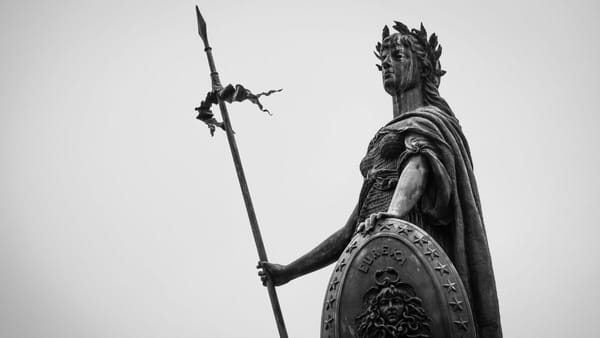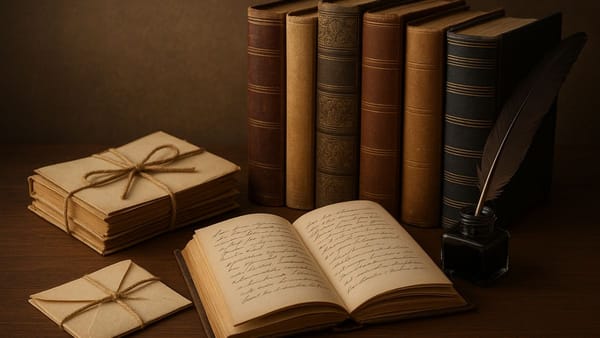Coming-of-age classics hold a special place in literature, capturing those delicate yet transformative years between childhood and adulthood. These books resonate deeply because they reflect universal experiences—first love, loss, identity struggles, and the quest to understand the world. Whether you're a teen navigating these complexities yourself or an adult revisiting youthful memories, coming-of-age novels offer profound insights into the human condition. Let’s dive into these essential literary classics about growing up.
Why Coming-of-Age Classics Are Timeless Treasures
Coming-of-age stories are timeless because they address universal themes like identity, family dynamics, first love, and moral awakening. Unlike more niche genres, coming-of-age novels hold universal appeal because every reader has navigated the complicated path of youth in one form or another. These novels evoke nostalgia, empathy, and introspection, allowing readers to reconnect with their younger selves, gain insight into their past, or better understand the experiences of younger generations. Through relatable characters and poignant storytelling, these books continually find new audiences, reinforcing their lasting cultural significance.
To Kill a Mockingbird by Harper Lee
Harper Lee’s timeless classic beautifully portrays Scout Finch’s journey toward understanding complex issues of race, class, and morality in her small Southern town. Through the innocent eyes of a child, readers explore deeply embedded prejudices and injustices, witnessing Scout’s growing awareness of the world around her. Lee’s vivid storytelling and authentic character development create an unforgettable exploration of childhood innocence and moral awakening. The novel remains a cornerstone in American literature, teaching crucial lessons about empathy, justice, and integrity.
The Catcher in the Rye by J.D. Salinger
J.D. Salinger's Holden Caulfield has become an iconic representation of adolescent rebellion and alienation. Set in post-war America, this novel captures Holden's cynical perspective as he confronts the complexities of adulthood, identity, and societal expectations. His wandering journey through New York City embodies the universal quest for meaning and authenticity during teenage years. Though often controversial, the novel's raw honesty continues to resonate profoundly with readers navigating their own path toward maturity.
Little Women by Louisa May Alcott
Louisa May Alcott’s beloved novel vividly portrays the trials, joys, and transformations of the four March sisters—Meg, Jo, Beth, and Amy. Set during the Civil War, Little Women explores themes of family, sisterhood, personal ambition, and romantic love. Jo March's struggle for independence and self-realization remains particularly resonant, reflecting timeless issues around gender roles and personal fulfillment. Warm-hearted and authentic, Alcott’s narrative continues to charm readers of all ages, cementing its place among must-read classics.
Jane Eyre by Charlotte Brontë
Charlotte Brontë's novel expertly blends romance, mystery, and social critique in the powerful story of Jane Eyre. As an orphaned girl who matures into a resilient woman, Jane navigates harsh circumstances, struggles with identity, and discovers love and self-respect. Her emotional and moral journey, marked by adversity and integrity, makes her one of literature’s most enduring and inspiring heroines, providing readers valuable insights into personal growth and inner strength.
Great Expectations by Charles Dickens
Charles Dickens vividly depicts the life of Pip, an orphan whose unexpected fortune profoundly alters his perceptions of love, ambition, and self-worth. Dickens masterfully captures the struggle between personal aspirations and moral integrity, illustrating the complex relationship between identity and social status. Pip’s emotional journey from naive childhood to sobering adulthood continues to captivate readers, offering profound lessons about humility and self-awareness.
Anne of Green Gables by L.M. Montgomery
Anne Shirley, Montgomery's imaginative and spirited protagonist, navigates the challenges of childhood and adolescence in the picturesque setting of Prince Edward Island. Her growth from impulsive orphan to mature young woman captures the essence of youthful dreams, friendship, love, and resilience. With humor, warmth, and delightful storytelling, Anne’s experiences remain universally appealing, making this novel a cherished coming-of-age classic.
The Outsiders by S.E. Hinton
S.E. Hinton revolutionized young adult literature by realistically depicting teenage gangs and socio-economic divisions. Through Ponyboy Curtis’s experiences, readers explore friendship, family loyalty, and the struggle to maintain humanity amidst violence. Honest, poignant, and empathetic, The Outsiders continues to engage young readers, helping them reflect on identity, belonging, and personal growth.
Lord of the Flies by William Golding
William Golding’s chilling exploration of civilization versus savagery unfolds through the experiences of young boys stranded on a deserted island. This psychological classic delves deeply into human nature, innocence lost, and the thin veneer of societal norms. Golding’s narrative remains profoundly relevant, providing haunting insights into the fragility of morality and the darker aspects of human behavior.
The Perks of Being a Wallflower by Stephen Chbosky
This heartfelt novel follows Charlie, a sensitive and introspective teenager navigating friendship, first love, trauma, and mental health. Chbosky sensitively portrays adolescent vulnerability and emotional complexity, capturing the bittersweet essence of growing up. Its authentic voice and relatable experiences make it a modern classic cherished by generations.
A Tree Grows in Brooklyn by Betty Smith
Smith’s novel portrays Francie Nolan’s bittersweet youth in Brooklyn’s tenements. Readers witness Francie’s hardships, resilience, and determination to find joy and education amid poverty and family struggles. Richly detailed and emotionally resonant, this narrative captures universal themes of hope, resilience, and the power of dreams.
Catch-22 by Joseph Heller
Though often cited among classic war novels, Heller’s absurdist masterpiece also brilliantly captures the disillusionment of youth forced into adulthood by war. Through Yossarian’s humorous yet tragic experiences, readers grapple with existential questions, the absurdity of bureaucracy, and the loss of innocence amidst chaos.
Their Eyes Were Watching God by Zora Neale Hurston
Hurston explores Janie Crawford’s journey toward self-discovery and independence. Through love, loss, and perseverance, Janie’s empowering story reflects timeless struggles for identity and autonomy, beautifully capturing personal and emotional growth.
The Bell Jar by Sylvia Plath
Plath’s autobiographical novel poignantly depicts Esther Greenwood’s struggle with mental health and identity. Intensely introspective, the narrative profoundly portrays the isolation, pressures, and existential dilemmas faced by young adults transitioning into adulthood.
Why These Novels Matter Today
Coming-of-age classics endure precisely because they explore universal experiences—identity, love, loss, and personal growth—in ways that continually resonate across generations. These novels speak profoundly to our hearts, enabling young and old readers to recognize and reflect on the shared complexities of growing up. Regardless of when or where they are read, these timeless stories help us better understand ourselves and others, highlighting the struggles and triumphs of maturing. Ultimately, these thirteen must-read novels enrich our appreciation for literature’s unique power to capture the essence of life's transformative years, proving themselves indispensable to every book lover’s personal library.
Thanks for reading. If this list helped you discover something new — or rediscover something old — you’re welcome to keep exploring:




















